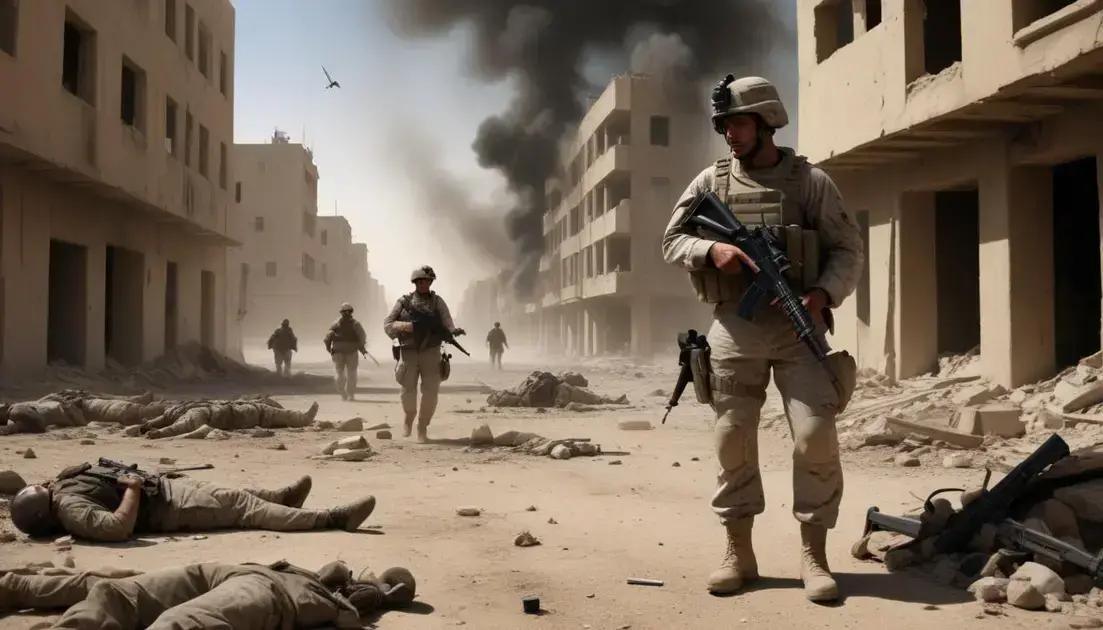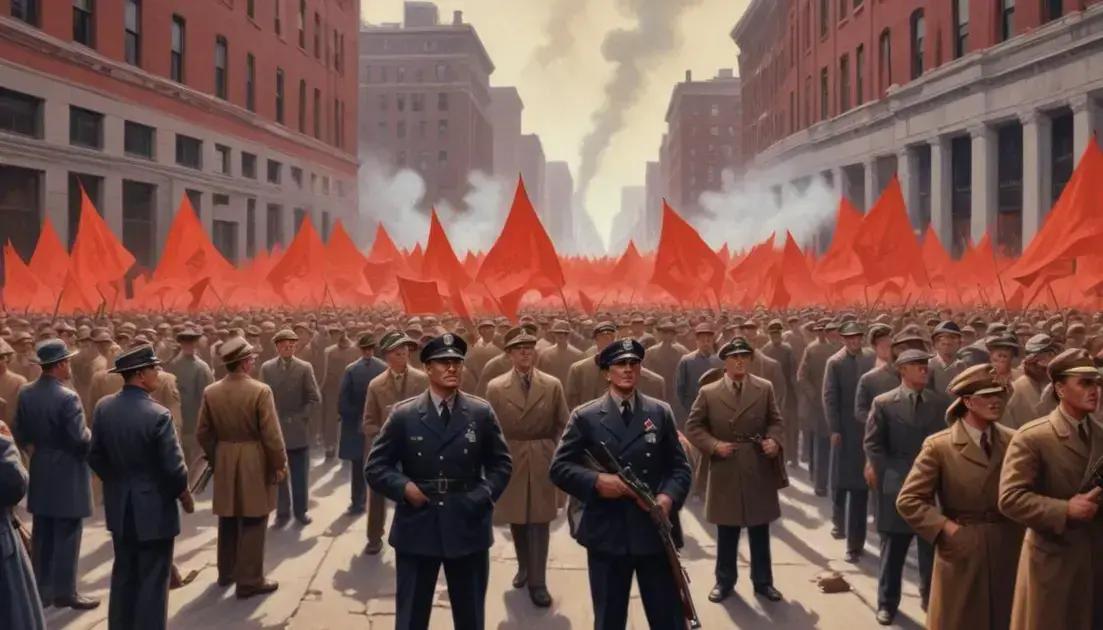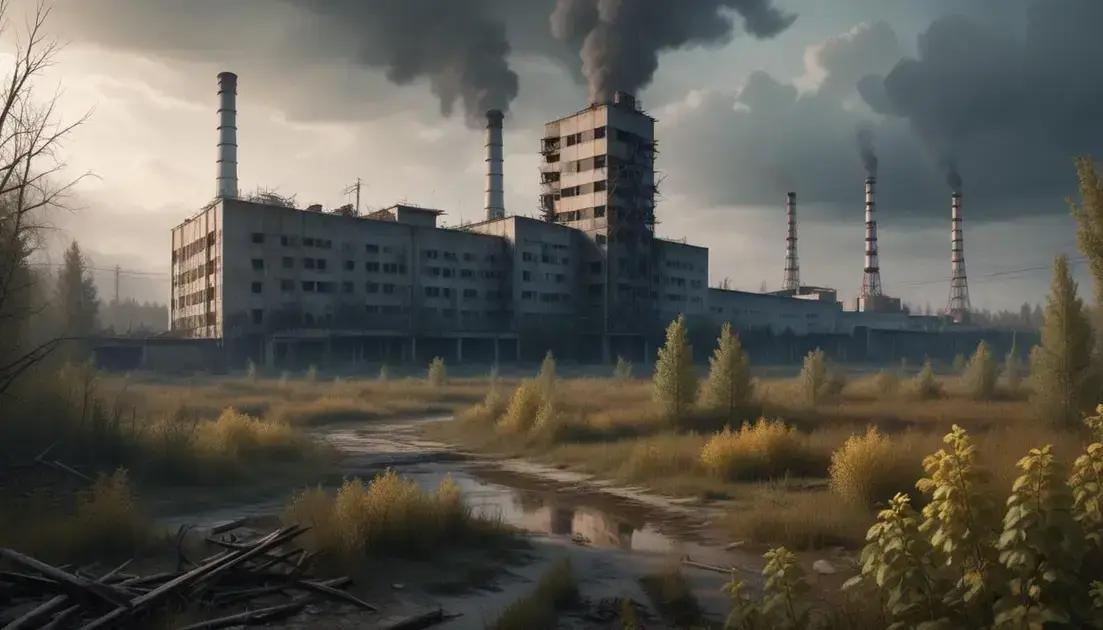
Iraq War: Weapons, Pretexts and Consequences
The Iraq War, initiated by the U.S. in 2003, dramatically altered regional stability and politics in the Middle East. Fueled by claims of weapons of mass destruction, the conflict led to significant violence, the rise of insurgent groups like ISIS, and ongoing challenges in Iraq’s governance. The war’s legacy includes shifts in global attitudes toward military intervention and a lasting humanitarian crisis, with millions displaced. Understanding the Iraq War’s consequences remains crucial for future policy and international relations.
Iraq War is a significant event that continues to shape discussions about military intervention and global politics. What really happened during this tumultuous period?
Introduction to the Iraq War
The Iraq War began in 2003. It was led by the United States, with help from other countries. This conflict started after strong claims about Iraq having weapons of mass destruction. Many felt these claims were reasons enough to go to war.
What Were the Reasons?
The U.S. government said Iraq posed a threat to other countries. The idea was that Iraq could use these weapons against them. Critics argued the evidence was not clear. Some believed the war was about control and oil rather than safety.
The Build-Up to War
In the months before the invasion, tensions were high. The U.N. went to Iraq to check for weapons, but the search found nothing significant. Still, the decision to invade was made. This choice led to a major military action that changed the region forever.
Who Was Involved?
The main players were the U.S. and its allies, including the UK. Iraq was led by Saddam Hussein at the time. The invasion was swift, but the aftermath was far more complex. There were many different groups involved in the conflict, each with their own goals.
The Iraq War opened the door to various challenges. It sparked further violence and complicated the political landscape of the Middle East. Understanding this war is essential to see how it shaped today’s world.
Background and Pretexts
The Iraq War was rooted in a complex set of background events. After the Gulf War in 1991, Iraq faced strict sanctions from the United Nations. These sanctions were meant to limit Iraq’s military capabilities, especially regarding weapons.
Key Events Leading Up to the War
In the years after the Gulf War, Saddam Hussein’s government struggled. The economy was in bad shape, and the people suffered. Many nations, especially the U.S., were worried about Iraq’s potential to rebuild its weapons.
Weapons of Mass Destruction
Claims about Iraq having Weapons of Mass Destruction (WMDs) became central to the U.S. invasion. The U.S. government argued that these WMDs could threaten other countries. Despite efforts to search for these weapons, reports found little evidence.
The Role of Terrorism
Another key issue was the connection between Iraq and terrorism. The U.S. linked Iraq to terrorist groups like Al-Qaeda. This claim fueled fears and justified military action in the eyes of many.
The combination of economic sanctions, the past conflict, and fears of weapons created a powerful narrative. This narrative influenced public opinion and political decisions about the invasion in 2003.
Key Players Involved
The Iraq War involved many key players, each with unique roles and motivations. Understanding these players helps us see the bigger picture.
The United States
The U.S. was the main driver of the invasion. The government, led by President George W. Bush, believed Iraq posed a serious threat. They aimed to remove Saddam Hussein from power.
Coalition Forces
Alongside the U.S., several countries joined the coalition. The United Kingdom played a major role. Other countries, like Australia and Poland, also contributed troops. This coalition aimed to support U.S. goals in Iraq.
Iraq’s Government
Saddam Hussein was the leader of Iraq at the time. His government was known for its harsh tactics and resistance to foreign intervention. Hussein’s regime was under scrutiny for alleged connections to terrorism and WMDs.
Iraqi Military and Insurgency Groups
The Iraqi military fought against the coalition forces initially. After the fall of Hussein, various insurgent groups emerged. These groups had different goals, ranging from resisting the occupation to fighting for political power.
Other local players included political leaders and groups that formed during and after the war. Each had a role in shaping the future of Iraq, often leading to conflict.
Consequences on Regional Stability
The Iraq War had significant consequences on regional stability. When the war began, many believed it would bring peace. However, the outcome was far more complex.
Increased Violence and Conflict
After the invasion, violence surged in Iraq. Insurgent groups rose, leading to brutal fighting. Sectarian violence between Sunni and Shia groups became common. This fighting spread beyond Iraq’s borders, affecting neighboring countries.
Influence on Terrorism
The instability led to a rise in terrorism in the region. Groups like ISIS emerged from the chaos, exploiting the unrest. They gained power and carried out attacks in various countries.
Impact on Neighboring Countries
Countries like Syria and Iran were affected by the war. Syria experienced an influx of refugees and increased violence. Iran saw an opportunity to expand its influence in Iraq and the wider region.
Many nations struggled to manage the consequences. There were tensions between countries that supported the invasion and those that opposed it.
Long-term Effects on Politics
Political systems in the region shifted. Countries faced new challenges in governance and stability. The Iraq War reshaped alliances and rivalries, leading to ongoing tensions.
Long-term Impact and Legacy
The Iraq War has left a lasting impact and legacy on Iraq and the world. Its consequences will be felt for many years to come.
Shifts in Regional Power
Many countries in the Middle East have experienced shifts in power. The war changed leadership dynamics, with new groups gaining influence. This shift has created ongoing tensions in the region.
Emergence of New Conflicts
The chaos from the Iraq War led to new conflicts. Groups like ISIS gained footholds. This created ongoing violence and instability in Iraq and beyond, affecting global security.
Global Attitudes Toward Intervention
Public opinion on foreign military intervention changed after the war. Many people became skeptical of such actions. The lessons learned have influenced how countries approach conflicts since.
Humanitarian Crisis
The war led to a significant humanitarian crisis. Millions of Iraqis were displaced, creating a refugee situation. This crisis has repercussions for global migration patterns and humanitarian aid efforts.
Political Landscape in Iraq
The political landscape in Iraq remains fragile. New governments have struggled to maintain stability. The legacy of the war includes ongoing challenges in governance and national unity.
Conclusion
In conclusion, the Iraq War has shaped both Iraq and the Middle East in profound ways. Its consequences continue to affect the region’s stability and politics. The rise of new conflicts and groups has created ongoing challenges for security.
The war also changed how countries view military intervention. Public opinion shifted, leading to more caution in future actions. Additionally, the humanitarian crisis left lasting scars, impacting millions of lives.
As we look at the legacy of the Iraq War, it’s clear that understanding its effects is crucial. These lessons can help guide policy decisions and international relations in the years to come.


